
To participants in an afternoon music therapy session, the smiling young man, arms draped with tattoos, may have looked unfamiliar. But the song, “Cool,” he strummed on his guitar, and sang with them, was a grin-inducing, dancing favorite for many.
Country music artist Jay Allen enjoyed connecting with those living with memory loss and their families who gathered at the Cleveland Clinic Lou Ruvo Center for Brain Health in Las Vegas, Nevada, to revel in the power of music. It’s a forceful experience the 37-year-old singer/songwriter, who competed on “The Voice,” shared with his beloved late mother Sherry Rich, who was diagnosed with early-onset Alzheimer’s disease at the age of 51 and passed away from the disorder at age 54 in 2019.
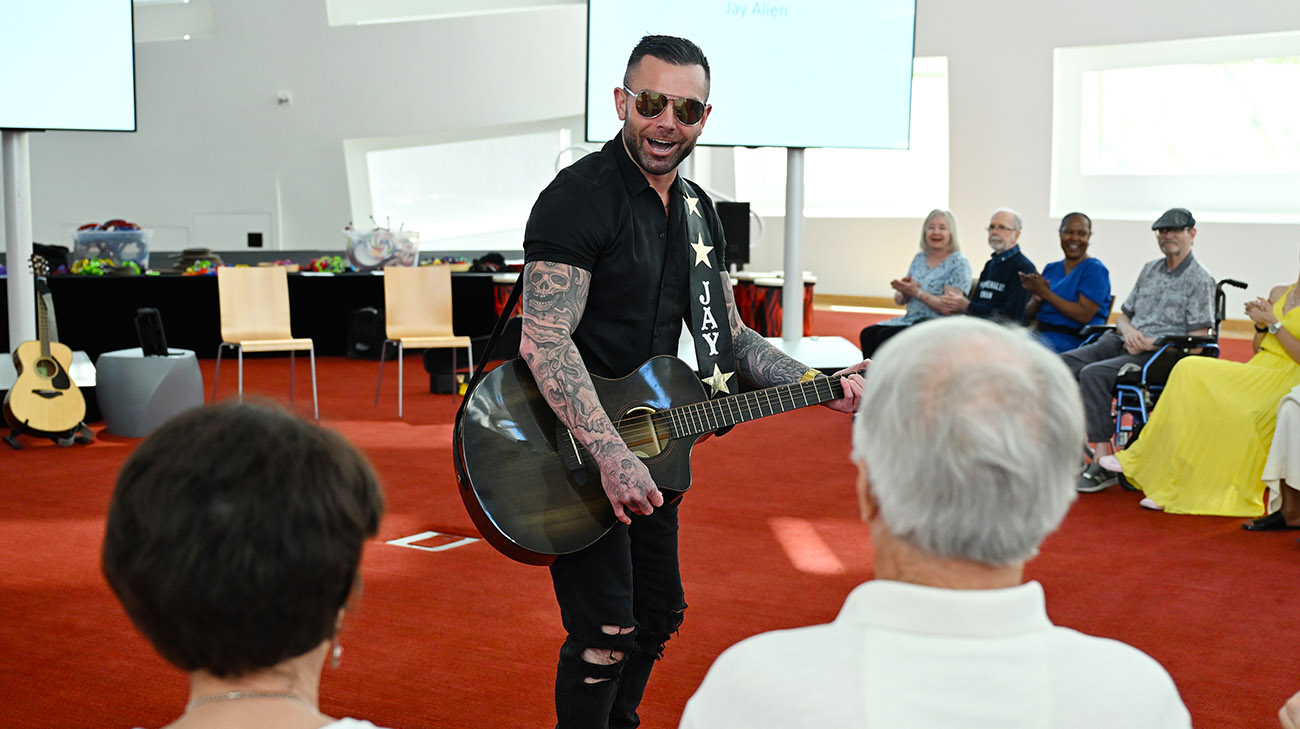
Jay during a music therapy session with those living with memory loss and their families at Cleveland Clinic Lou Ruvo Center for Brain Health. (Courtesy: Cleveland Clinic)
“When you’re a child, there’s a look in your mom’s eyes you just can’t replicate,” says Jay, who has raised significant funds for Alzheimer’s research through his music and testimony about the effects of the disease. “But when my mom looked at me for the first time with her sick eyes, she saw a stranger. Many times, though, the power of music brought her back to life, at least for a while.”
Before Jay’s father, Joe, drove Sherry from their home in Iowa to Nashville, Tennessee, to visit Jay in 2016 for the first time since her diagnosis, he warned his son to be prepared. Jay was nevertheless shocked when he opened the door to a woman, with a blank look on her face, who clearly didn’t recognize him.
Brokenhearted, Jay turned to his love for music, which Sherry had helped instill in him years before as an ardent fan of country and Christian music. That night, he took his parents to a Nashville nightclub, a band was playing onstage, and Jay coaxed his mother onto the dance floor, the pair swaying slowly despite the fast-paced song.
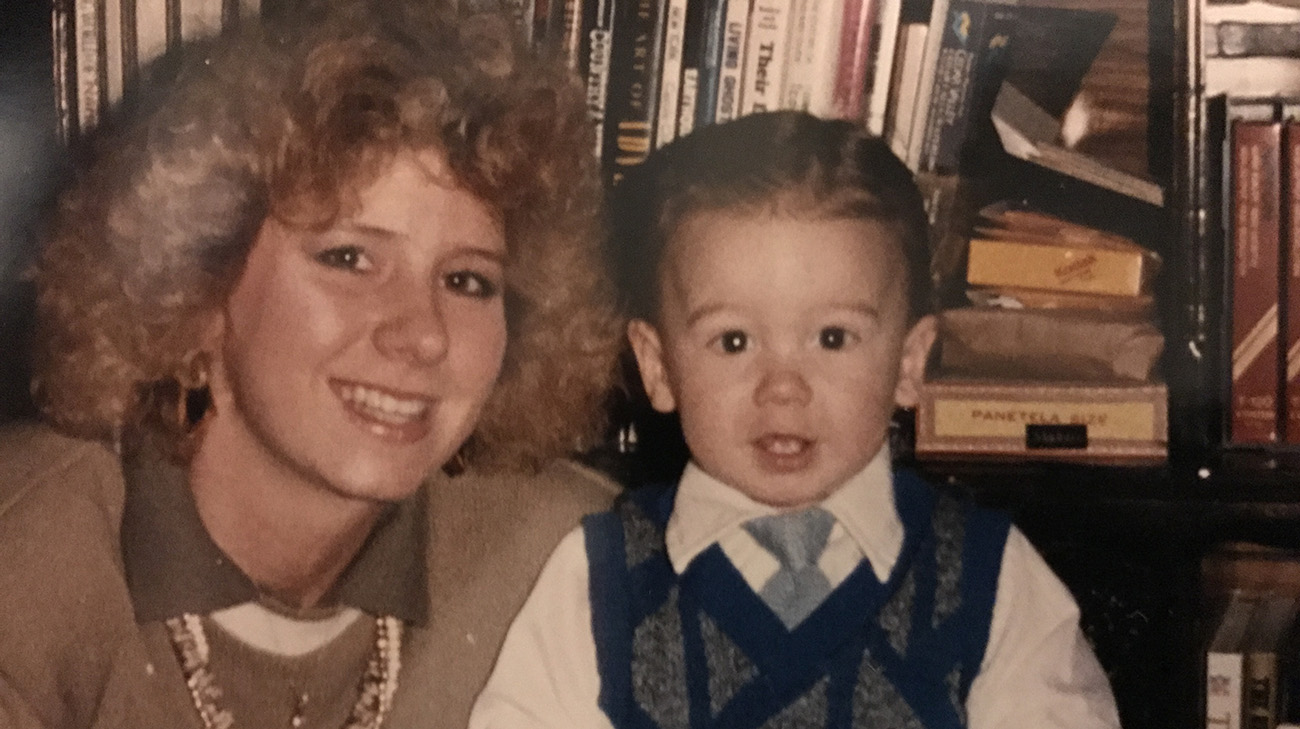
Jay when he was a child, with his mother, Sherry, (Courtesy: Jay Allen)
Sherry suddenly brightened and called her son by his name. “She whispered in my ear, ‘Jay, I missed you. I love you so much.’ That band woke her from her sickness. Years before, I had been a Christian music director and thought I’d experienced the power of music. But nothing was as powerful as connecting, through music, when my mom was sick,” states Jay.
Before his mother passed away, Jay was able to experience more of those powerful interventions with her. On several occasions, especially when performing in the Midwest near his parents’ home in Iowa, Jay brought his mother onto the stage with him. The first time was a concert in August 2018. More than one hour after his set, he walked off-stage, grabbed his mother’s hand, brought her to the microphone and sang, “Blank Stares,” the song he wrote about Sherry and the devastating effects of Alzheimer’s.
“Oh how do I get you back; If I could only seal the cracks you're slipping through; Wish I didn't feel so helpless when it comes to helping you; Hold on; So I keep holding on; To every little memory made of you and me; Every little glimpse of who you used to be; I know you're still in there; Deep down somewhere I swear I still see you; Between the blank stares”
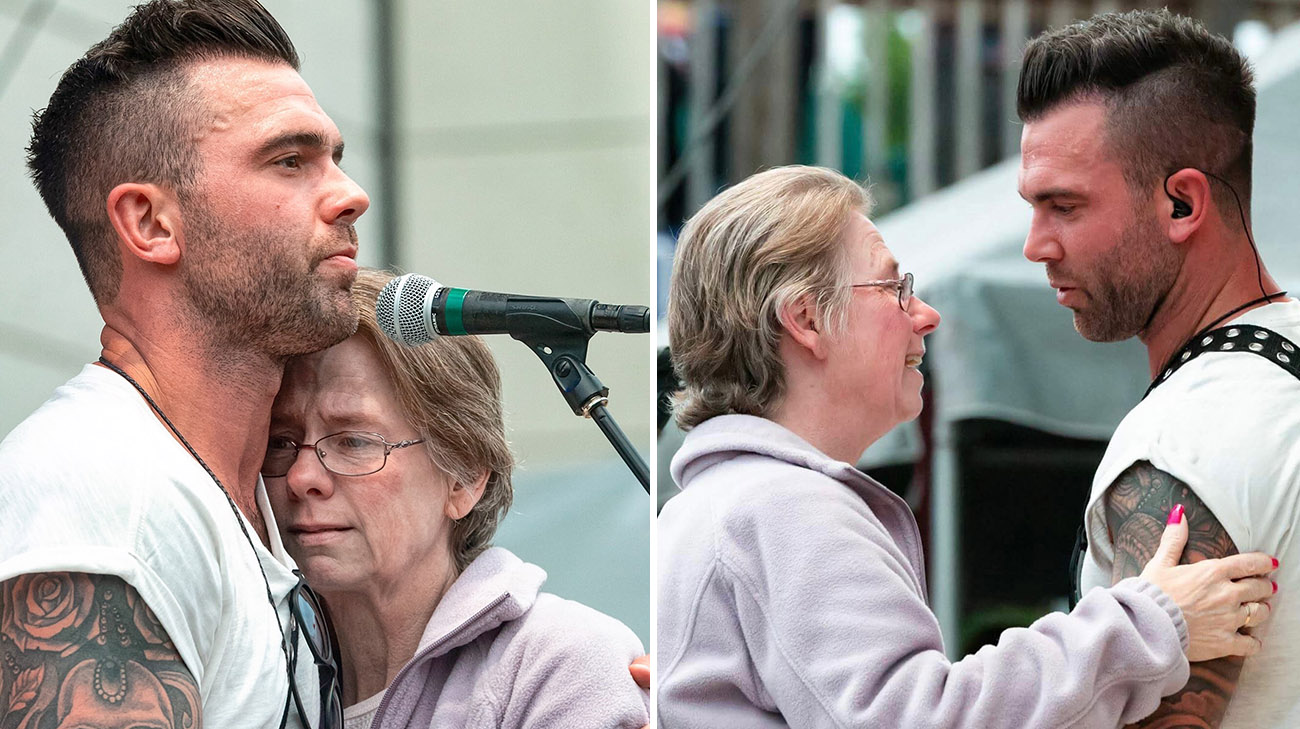
Jay brought his mother, Sherry, on stage to perform a song he wrote about the devastating effects of Alzheimer's. (Courtesy: Jay Allen)
“To see a crowd that came to party suddenly experience such a beautiful and impactful moment, it was special,” says Jay. “I got to teach and show them something about Alzheimer’s. It was hard to do it, but I’m glad we did. There’s still a ripple effect, years after her passing.”
Research has consistently shown music, and more specifically, music therapy, can help improve brain function. It’s a key component of the Lou Ruvo Center for Brain Health’s efforts to treat patients with Alzheimer’s disease, dementia and other neurological disorders.
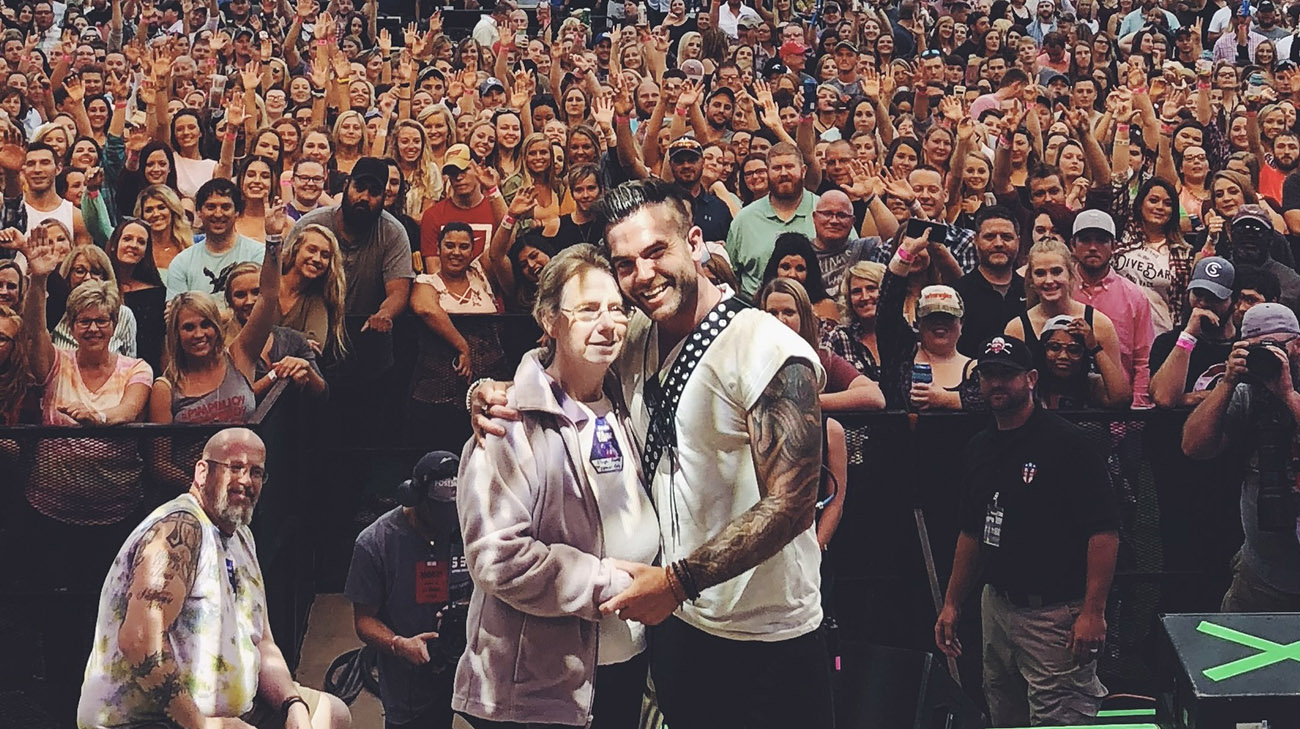
Jay and Sherry during one of Jay's concerts. (Courtesy: Jay Allen)
“In the face of significant cognitive loss and decline that’s typical in patients with Alzheimer’s, musical memories are, broadly speaking, very well-preserved,” explains Lucille Carriere, PhD, a psychologist and director of the Behavioral Health Program at the Lou Ruvo Center for Brain Health. “Music therapy is one of the most powerful interventions we can offer, even when other therapeutic services may no longer be beneficial.”
It’s events like the Power of Love gala that serve as a vital fundraising platform to enable the Lou Ruvo Center for Brain Health to find, fund, and facilitate the most effective and innovative research, treatment, and educational support programming for patients, their families and members of the community.
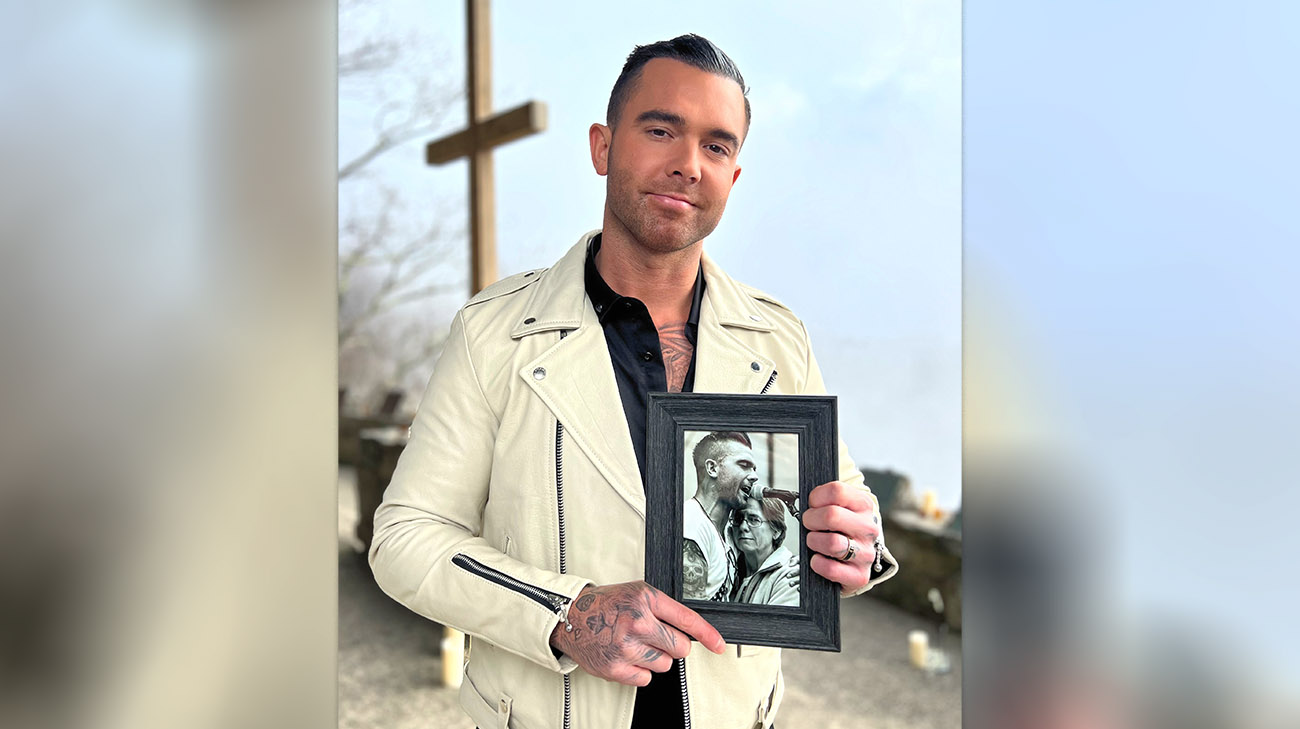
Jay hopes his and his mother's story helps further raise awareness of Alzheimer's. (Courtesy: Jay Allen)
And it’s advocates like Jay who help further give voice to the greater purpose. “I want people to know they’re being heard, and they’re not alone,” says Jay. He notes the biggest struggle he faced related to a loved one being diagnosed with Alzheimer’s is the role reversal as a caregiver --fighting for the person who nurtured and fought for you.
After Sherry passed away, Jay wrote a song called, “No Present Like the Time.” The lyrics reflect the life lessons his mom taught him. The song will remain a staple of Jay’s shows throughout a career that continues to grow. “Wherever my career takes me, we will always stand for this cause.”
Related Institutes: Neurological Institute

